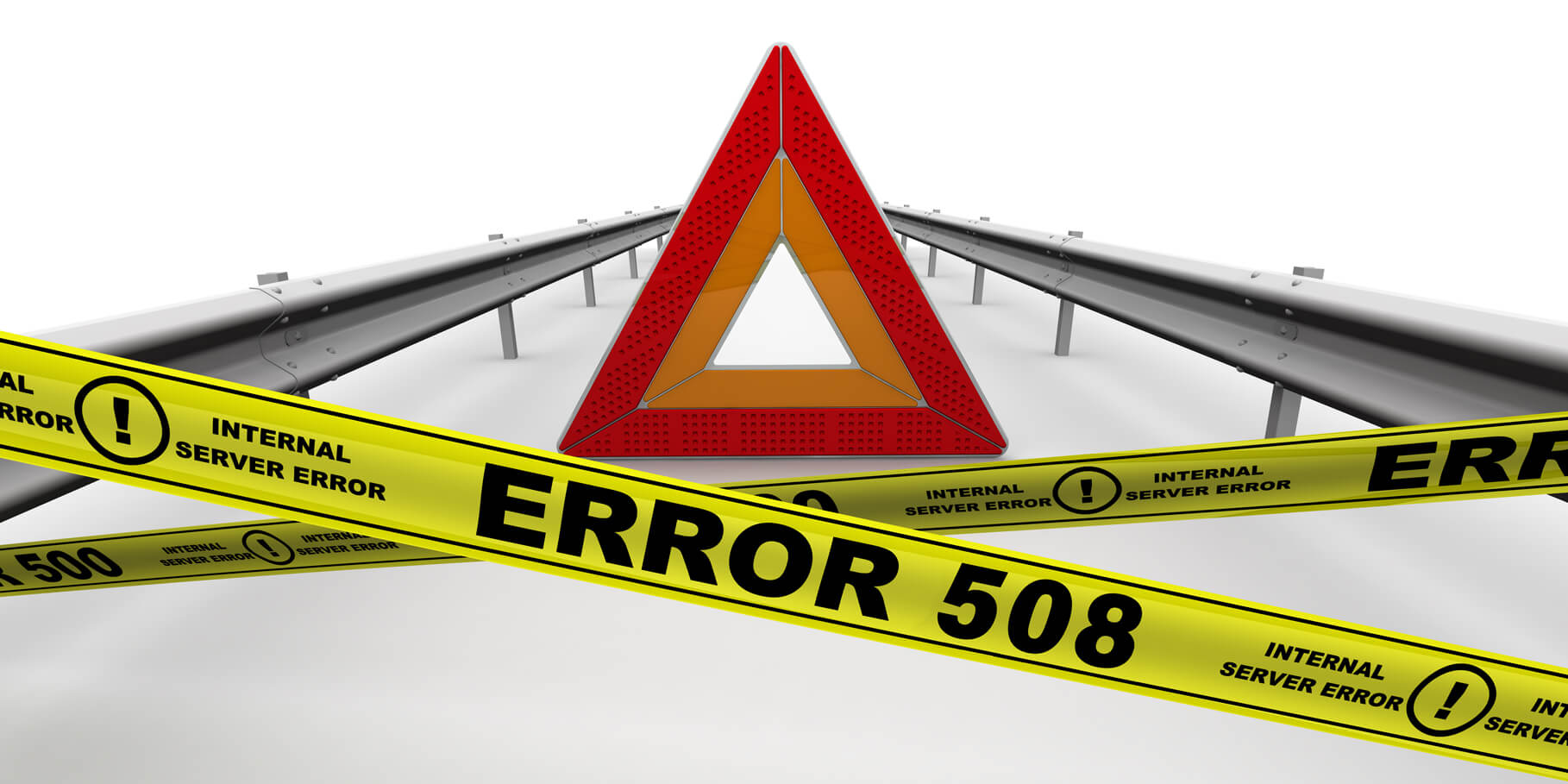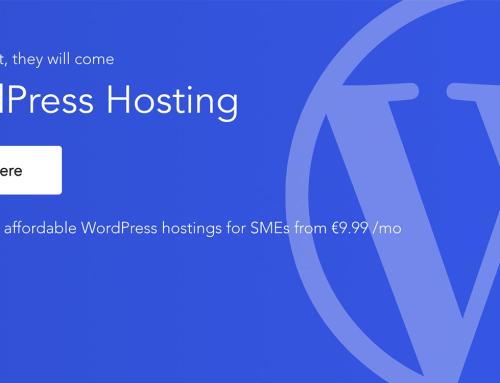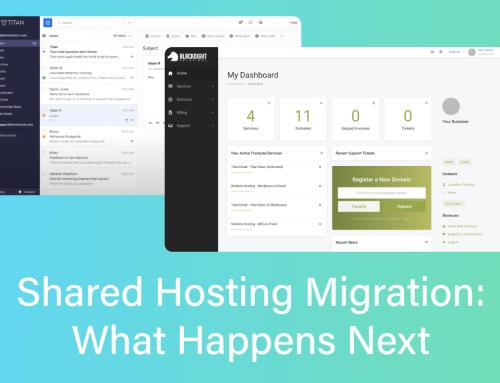We’ve all been there. We think things are humming along fine with our website, but when we visit it, there’s an error saying something along the lines of your resource limits have been reached. Or worse, a customer tries to go to your website and gets the error and contacts you instead to tell you your website is broken. Not great for building your reputation online! When you run a website, this can happen. Sometimes it’s your fault; sometimes it’s not. Sometimes it just happens. So, here are some thoughts and steps to take if you get the dreaded resource limits reached error message from your web host.
First, Don’t Panic
This doesn’t mean that your website has disappeared. It’s just not currently loading, but the website is still there, and all your data is still there.
What is the 508 Resource Limit Reached Status Code?
With Blacknight, when your website has hit its resource limits, it no longer loads, and visitors are presented with a 508 Resource Limit Reached Code (the error may be different for other web hosts). You can read more about the technical aspects of the code here.
How it happens
The most common reason a website hits its resource limits is that it got a traffic spike, and more often than not, this is unexpected. I’ll talk a little about expected spikes later. But a traffic spike is not the only reason a shared hosting account can hit its limits.
Some examples of how it happens include:
- Expected / unexpected traffic
- Software that is using a lot of resources at once
- A script that runs out of control
- The database is too large
- File storage is full
When we say ‘resource’, we use the term broadly; it isn’t just the processing power that you’re using; it’s also your hard drive space, RAM, and bandwidth. On a shared hosting plan, all of these have limits to make sure all the websites hosted on the same server run smoothly.
Unexpected traffic spikes
This is something out of the control of most website owners. You have no idea when something will go ‘viral’ and generate a lot of interest in your website. You can mitigate against spikes by installing caching and using services like Cloudflare. Then there are situations where your website comes under brute force attack, maxing out the resources on your shared hosting plan. There are lots of things you have no control over that can make you hit your resource limit, and this is usually affecting more websites than just yours. Of course, this is something we would help deal with.
Expected traffic spikes
If you’re going to say, be on Morning Ireland or Dragon’s Den, you should harden your website – and that includes speaking to your web host and letting them know that this is going to be happening. The worst that could happen to you is for your website to go offline while you’re on the telly because the traffic spike is bringing down the rest of the server. We’ve all been there, watching a TV show when something spikes our interest, and then when we try to access the website, we can’t. Think of all the lost business from hundreds of people while the website is down. You can prevent this by preparing your website for an expected traffic spike during something like this. All you need to do is talk to your web host. Please. We can help.
Shared Hosting Limits has limits.
Connections
With our shared hosting packages (and most with other web hosts), we have limits on ‘concurrent connections.’ In the simplest terms, it’s how many connections you can have to your webspace at any given time.
A concurrent connection is a request or a connection to the webspace. Basically, if a customer lands on your web, that page might have 10 ‘connections’ to make to display your website, for example, loading an image, or file. This is where the cashing software comes into play; it can help mitigate the number of connections.
Webspaces
Your hosting account with Blacknight is a ‘webspace.’ This is where your website is hosted – but in most cases – you can host more than one website in the same webspace. So, if you have several websites operating on the webspace, they’re all using the same connection limits. So, if one website gets out of control, you’re going to hit your limits and take town all the websites in your account at once.
Storage
In addition to server resource limits on shared hosting, there are also storage limits. If you end up using too much disk space, this can trigger your website to go offline. While most storage limits on shared hosting (and on our hosting) are rather generous, it’s easy to fill all your allocated storage and not realise it. Whether it’s uploading too many images, audio files, or videos – or letting your database get out of control. Even storing too many backups locally can eat up valuable hard drive space (and this is even a problem on dedicated hosting as well). Hard drives are finite! Pay attention to your storage and if you run out of storage, get in touch with us right away so we can adjust your plan.
Our Top Tips:
Prepare for events, please.
If you are carrying out a launch, competition, promotion on Social Media or TV/Radio etc. and know of this in advance – then we would highly advise moving the website to a Cloud VPS – the highest plan available, or a dedicated server, to cater for the expected traffic. It’s best to get in touch with us directly so that we can figure out what exactly you need, so you don’t buy too much hardware. If you have a big promotion and expect lots of people on your website, then a Cloud VM will probably be enough of an upgrade. You can always downgrade after your promotion/expected traffic spike is over.
Use third-party services to host your video!
When it comes to files that cause high overhead on a server – like hosting video files, you should always look for a third-party solution. Host your videos on somewhere like YouTube or Vimeo. Host your podcasts on Libsyn, Spotify, Soundcloud, etc. The reason for this is the concurrent connection limit. If someone loads a 10-minute video, then they are taking up a connection for the entire time it takes for that video to be downloaded. If your account has a 50 connection limit, then only a few people at any given time can load the video. Same with a podcast.
Audio and video files also hog up a lot of bandwidth, so you could quickly hit those limits as well.
So, you hit your limits, now what?
Contact us immediately. If your website has hit its resource limit, call our support team, start a live chat session, or send us an email. That way, we can figure out what caused your limits to be reached and then offer solutions. Some solutions will be quick – like upgrading you to a bigger hosting package. Some will not be so quick – migrating to a Cloud VPS will take a bit of time. Setting up a dedicated server and migrating will take even longer. This is all very good for your business – it shows that you’re getting to the next level and you have positive business growth. That’s why it’s very, very important to prepare for unexpected traffic spikes so that any downtime you do have does not harm your bottom line.
Has this happened more than once? Perhaps it’s time to think about options where resource limits are less of an issue.







Comments are closed.